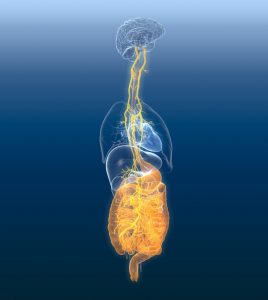Understanding the Physiology of Hiccups
Stress Gives You Hiccups, though often dismissed as a minor inconvenience, can be surprisingly persistent and bothersome, especially when they seem to arise out of nowhere. While there are numerous triggers for hiccups, one of the more intriguing connections is between stress and this involuntary diaphragmatic spasm. To truly comprehend why stress can lead to hiccups, it’s crucial to delve into the physiology behind this common phenomenon. Explore more about (Constant Coldness)
The Role of the Diaphragm
At the center of the hiccup mechanism lies the diaphragm, a dome-shaped muscle situated beneath the lungs. This muscle plays a pivotal role in the respiratory process, contracting and relaxing to facilitate breathing. However, hiccups occur when the diaphragm contracts involuntarily, causing a sudden intake of breath that is abruptly halted by the closure of the vocal cords, resulting in the characteristic “hic” sound.
Stress and the Autonomic Nervous System
The autonomic nervous system (ANS) regulates various bodily functions, including heartbeat, digestion, and respiratory rate, often without conscious effort. When the body perceives a threat or experiences stress, the sympathetic branch of the ANS initiates the “fight or flight” response, triggering a cascade of physiological changes to prepare the body for action. This response involves increased heart rate, shallow breathing, and heightened muscle tension, all of which can contribute to the onset of hiccups.
The Vagus Nerve Connection
Another key player in the hiccup pathway is the vagus nerve, the longest cranial nerve in the body responsible for controlling several autonomic functions, including swallowing and speech. The vagus nerve interacts with the diaphragm through a complex network of neural pathways, modulating its activity and influencing respiratory patterns. Under conditions of stress, the vagus nerve may become overstimulated, leading to erratic diaphragmatic contractions and, consequently, hiccups.

Exploring the Psychological Component
While the physiological mechanisms behind stress-induced hiccups are well-documented, it’s also essential to consider the psychological factors at play. Stress, whether stemming from work, relationships, or other sources, can manifest in various ways, including tension, anxiety, and emotional distress. These psychological states can exacerbate the physiological responses associated with stress, further increasing the likelihood of experiencing hiccups.
The Mind-Body Connection
The mind-body connection is a fundamental principle in understanding the impact of stress on physical health. Research has shown that psychological stressors can influence the functioning of the body’s systems, including the respiratory system implicated in hiccups. Moreover, chronic stress can contribute to the development of underlying health conditions, such as gastroesophageal reflux disease (GERD), which is known to trigger hiccups.
Coping Mechanisms and Stress Management
Given the intricate interplay between stress and hiccups, adopting effective coping mechanisms and stress management strategies is essential for mitigating their impact. Techniques such as deep breathing, meditation, and progressive muscle relaxation can help counteract the physiological effects of stress, promoting a sense of calm and well-being. Additionally, addressing the underlying sources of stress through therapy, lifestyle changes, or social support can contribute to long-term resilience against stress-induced hiccups.
Practical Tips for Hiccup Relief
While understanding the underlying mechanisms of stress-induced hiccups is valuable, finding immediate relief from this vexing condition is often a top priority. Fortunately, several simple yet effective strategies can help alleviate hiccups and restore normal breathing patterns.
1. Diaphragmatic Breathing
Practicing diaphragmatic breathing, also known as belly breathing, can help relax the diaphragm and alleviate hiccups. To perform this technique, inhale deeply through the nose, allowing the abdomen to expand fully, then exhale slowly through the mouth, focusing on releasing tension with each breath.
2. Drinking Water
Sipping on a glass of water or gargling with water can stimulate the vagus nerve and interrupt the hiccup reflex. Cold water may be particularly effective in calming the diaphragm and halting the hiccup cycle.
3. Applying Pressure
Applying gentle pressure to the diaphragm or the area just below the sternum may help interrupt the hiccup reflex. Techniques such as breath holding, swallowing a spoonful of sugar, or pulling the knees up to the chest can also provide relief for some individuals.
4. Distraction Techniques
Engaging in distracting activities, such as swallowing a teaspoon of vinegar, holding one’s breath, or focusing on a challenging mental task, can divert attention away from the hiccups and break the cycle of diaphragmatic spasm.
5. Seeking Medical Attention
Persistent or severe hiccups that do not respond to home remedies may require medical evaluation to rule out underlying medical conditions. In such cases, healthcare professionals may recommend pharmacological interventions or further diagnostic testing to address the root cause of the hiccups.

Stress vs. Hiccup Relief Techniques
| Stress | Hiccup Relief Techniques |
|---|---|
| Increased heart rate | Diaphragmatic breathing |
| Shallow breathing | Drinking water |
| Muscle tension | Applying pressure |
| Anxiety | Distraction techniques |
| Emotional distress | Seeking medical attention |
Conclusion
In summary, the relationship between stress and hiccups is multifaceted, involving intricate physiological pathways and psychological processes. While stress can exacerbate the likelihood of experiencing hiccups through its effects on the autonomic nervous system and the vagus nerve, adopting stress management techniques and addressing underlying sources of stress can help alleviate this bothersome symptom. By understanding the interplay between stress and hiccups and implementing effective coping strategies, individuals can regain control over their respiratory function and experience relief from this common yet disruptive phenomenon.












